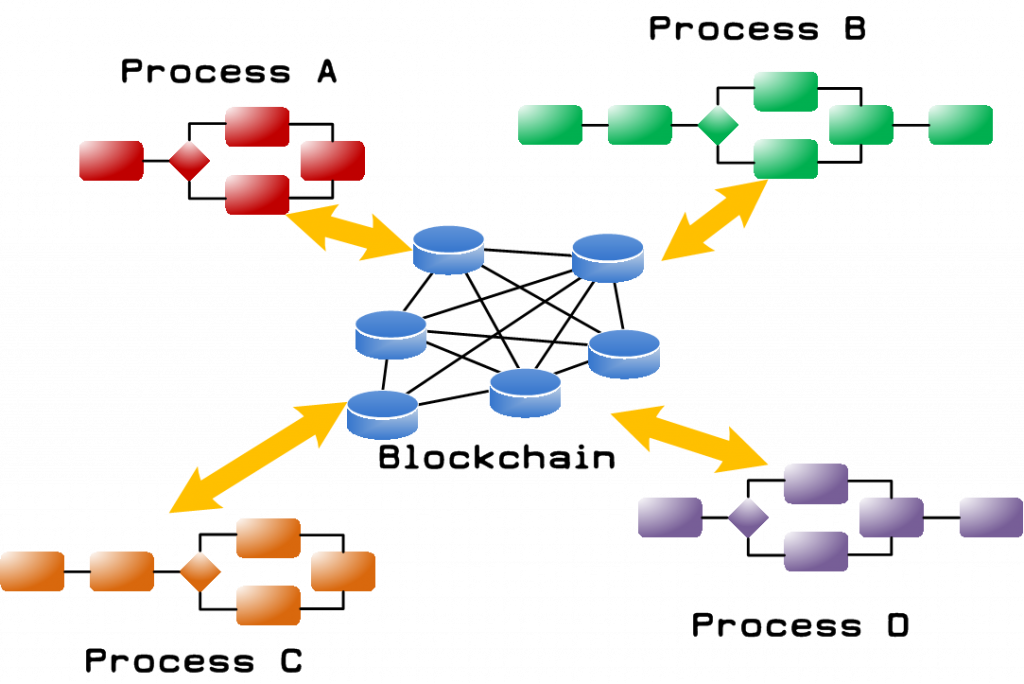Originally posted on 23may17 to IBM Developerworks (16,554 Views)
If you like me are hearing ‘Blockchain this, blockchain that‘, it almost seems like blockchain will solve world peace, global hunger and feed your pets for you! We’re obviously at the ‘peak of inflated expectations’ of the Gartner hype cycle.
I saw a tweet yesterday from an ex-colleague at IBM yesterday that spoke about using blockchain to combat fraud in a Telco. While I can see that as a possible use case, I was thinking about other opportunities for blockchain.
Perhaps I need to explain blockchain briefly so that those that don’t understand it can also understand the Telecom use cases for blockchain. Wikipedia defines it like this:
“A blockchain… is a distributed database that maintains a continuously growing list of records, called blocks, secured from tampering and revision. Each block contains a timestamp and a link to a previous block.By design, blockchains are inherently resistant to modification of the data — once recorded, the data in a block cannot be altered retroactively. Through the use of a peer-to-peer network and a distributed timestamping server, a blockchain database is managed autonomously. Blockchains are “an open, distributed ledger that can record transactions between two parties efficiently and in a verifiable and permanent way. The ledger itself can also be programmed to trigger transactions automatically.”
So, it’s an immutable record of changes to something. I was thinking about that yesterday and there were a number of use cases in Telecom that I could think of that could use blockchain. I’m not suggesting that they should use blockchain or that it’s needed, just that they could. These are the Use cases I came up with:
- Fraud prevention : being immutable makes it harder to ‘slip one by’ the normal accounting checks and balances that any large company has. I suppose the real question is ‘exactly which records need to be stored in a blockchain to enable that fraud prevention?’ The obvious one is the billing records.
- Billing – maintaining state of post-paid billing accounts, who is making payments, billing amounts and other biulling events (such as rate changes, grace periods etc)
- Tracking changes to the network. At the moment, many of the changes being made in a Telco’s network may be made by staff, but increasingly, maintenance and management of the network is being outsourced to external companies and you want to keep en eye on them to ensure they’re doing what they say they’re doing. In the new world of Software Defined Networks (SDN) utilising Network Function Virtualisation (NFV) to build and change the network architecture at a rate that we’ve not seen before, it becomes important for a Telco to be able to track changes to the network to diagnose faults and customer complaints. Over a 24 hour period, a path on a network that supports enterprise customer X may change tens of times – much higher frequency than would be possible if the network elements were physical.
- Tracking changes to accounts by customers and telco staff – I could imagine a situation where a customer claims that they didn’t request a configuration change, but a blockchain based record of changes could be used to track beck through all the changes in a customer’s account to determine what happened and when – potentially enabling a Telco to limit the liability to the customer… or vice versa…
- Tracking purchases – A blockchain record of purchases would allow a CSP to rebuild a customer’s liability from base information; provided there was an immutable record of the data records as well…
- xDRs – any type of Data Record (CDRs, EDRs…) could be stored in a blockchain to facilittate rebuilding of a client’s history and billing records from base data. The problem with using a blockchain to store xDRs is the size requirements. I know that large CSPs in India for example produce between five and ten BILLION records per day. It wouldn’t take long for that to build up to a very large storage requirement – even if you store the mediated data records, it’s going to be very large. I guess the question is : ‘what is the return on investment?’ – it is worth while doing. I can’t think of a business case to justify such an investment, but there may be one out there.
- Assurance events – Recording records associated with trouble tickets and problem resolution.
I don’t for a second think that all of these can be justified in terms of cost/benefit analysis, but I could see blockchain being used in these scenarios.
Do you have any ideas? Please leave a comment below.
<edit>
I realise I missed the usual business case that blockchain is used for – a financial ledger. Obviously storing a CSP’s financial data in a blockchain would work (and make sense) as it would in ANY other enterprise. I really wanted to illustrate the CSP specific use cases for blockchain.
</edit>

